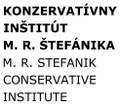
The overall tax burden in Slovakia is as high as 61 %. The taxes should be reduced.


Bratislava | August 24, 2016 - In 2015, overall tax burden in Slovakia has reached as much as 61.1% of the real gross employee's average wage. This way, the Tax Burden Release Day in Slovakia was August 24 in 2016. Any intentions of the Slovak Government to increase the taxes are not economically reasonable and justifiable. It should reduce the taxes and total tax burden in Slovakia.
According to the methodology and calculations of the European Investment Centre (EIC) and Conservative Institute of M. R. Štefánik (CI), the overall tax burden of a Slovak citizen in 2015 reached as much as 61.1 % of the average wage de facto belonging to an employee (see more in Appendix 1). This way, an employee with an average wage (€883 per month in 2015), after having paid all his taxes, would keep only 38.9 % of his/her real gross wage (total labor costs). While the total monthly labor costs would be equivalent to almost €1,230, the employee would be left only €478.50.
In 2015, average real salary of an employee in Slovakia was reduced by the following categories of items: mandatory social and health insurance contributions: almost 35 %, personal income tax: 6.1 %, VAT: 9.1 %, excise duties: 3.4 %, and other taxes: 7.6 %. The money remaining to the average-salary employee was less than 39 %.
In 2015, the most taxed item was the taxpayer's income (71.5 % of the total taxation), followed by consumption, property and business. From these obligatory payments, the greatest portion was directed to the national government, including the social and health insurance funds (81.6 % of the taxes), followed by municipalities and regional governments (Higher Territorial Units) combined, then private companies and the EU.
A brief introduction to the methodology of computing the overall tax burden in Slovakia
De facto tax is deemed any administratively enforced payment to either public or private entities, mainly social and health insurance contributions, personal income tax, excise taxes, distribution fees to companies in network industries, VAT, fees paid to public administration and central government or local administration-shared companies, property taxes as well as customs, duties and other mandatory contributions and taxes for business (which increase the costs of consumers, including the employees, by the mean of higher prices of goods and services).
Real gross wage (wage de facto belonging to an employee) corresponds to the total labor costs – total costs of employing an individual, including social security and health care contributions and other mandatory payments of employers (such as for meal vouchers) intended for the benefit of employees.
The overall tax burden shows the ratio of all significant taxes to an average real gross wage. Such overall tax burden gives people an idea of the total costs of administration, operation and interventions of the entire public sector.
Roman Scherhaufer, Chairman of the EIC
Peter Gonda, Director of the Conservative Institute
Lukáš Klenovský, Fellow of the Conservative Institute
Michal Mesík, Fellow of the Conservative Institute